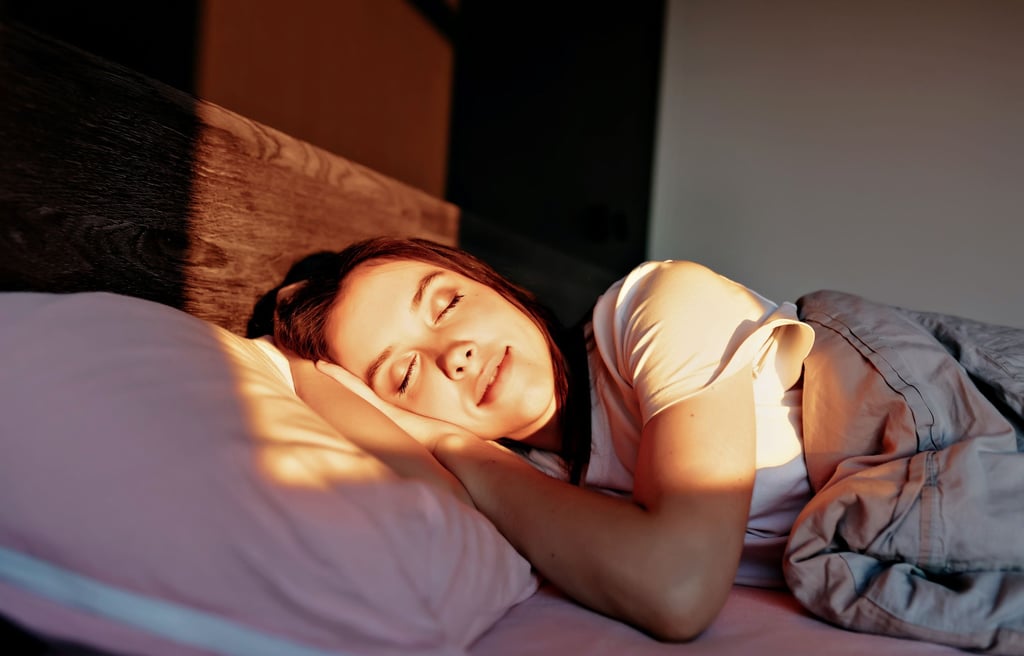10 Tips for Optimizing Sleep for Better Health and Rest
10 Tips for Optimizing Sleep for Better Health and Rest. Improving sleep takes time. Stick with healthy habits, and your body will adjust. Good sleep isn't a luxury – it's essential for basically every aspect of your health and well-being.
HEALTH & WELLNESS
K.N.
8/18/20256 min read


Understanding the Importance of Sleep
Sleep is not just a time to recharge; it’s super important for keeping us healthy and happy! When we get good sleep, our brains work better, we feel happier, our bodies fight off sickness, and we can even keep a healthy weight. But a lot of us don’t get enough good sleep. In this blog, we’ll explore how you can optimize your sleep to improve your health and feel more rested.
1. Create a Sleep-Conducive Environment
Your sleep environment plays a crucial role in how well you sleep. Start by making your bedroom a tranquil haven by keeping it dark, cool, and quiet. Investing in blackout curtains, a fan, or a white noise machine can help build a perfect setting for sleep.
Also, be mindful of your mattress and pillows. Supportive bedding can significantly impact your sleep quality, so choose what feels most comfortable to you. Remember, your bedroom should only be for sleep and relaxation. Try to limit other activities like work or eating in this space.
Darkness: Use blackout curtains or a sleep mask.
Quiet: Use earplugs or white noise machines if needed.
Temperature: Keep the room cool (~65°F / 18°C).
Comfort: Invest in a supportive mattress and pillows.
2. Create a Relaxing Bedtime Routine
Create a relaxing bedtime routine by setting a consistent bedtime, dimming lights, avoiding screens, reading, stretches, herbal tea, or a warm bath with essential oils. Practice mindfulness, deep breaths, and write down worries or tasks for tomorrow. This will help your body relax and drift off into dreamland more peacefully.
Wind down with calming activities (reading, meditation, gentle stretching).
Avoid stimulating activities (intense exercise, work, or screens) 1-2 hours before bed.
3. Establish a Consistent Sleep Schedule
One of the simplest yet effective tips for optimizing sleep is to stick to a regular sleep schedule. Heading to bed and waking up at the same time every day, even on weekends, helps regulate your body’s internal clock. This consistency signals to your brain when it’s time to sleep and when it’s time to wake up, leading to better sleep quality over time.
Developing a calming pre-sleep routine can also signal your body that it’s time to wind down. Practices like reading, meditating, or taking a warm bath can promote better relaxation, leading to deeper sleep.
Go to bed and wake up at the same time every day (even on weekends).
Helps regulate your body’s internal clock (circadian rhythm).
4. Mind Your Diet and Caffeine Intake
What you consume throughout the day can significantly affect your sleep patterns. Be cautious with caffeine and alcohol, particularly later in the day. While it may seem like a nightcap will help you sleep, it can actually disrupt your sleep cycle over time.
Also, consider your evening meals. Heavy or spicy foods may cause discomfort and keep you awake. Try to eat lighter meals a few hours before bedtime to promote better sleep. Instead, reaching for sleep-friendly snacks like bananas or almonds can provide your body with nutrients conducive to rest.
Avoid caffeine (coffee, tea, soda, chocolate) 6+ hours before bed.
Limit alcohol—it disrupts deep sleep.
Avoid heavy meals late at night (digestion can interfere with sleep).
Hydrate earlier in the day to minimize nighttime bathroom trips.
5. Limit Screen Time Before Bed
These days, we spend a lot of time staring at screens, and that can mess with our sleep. The blue light from our phones, tablets, and computers can trick our brains and make it tough to feel sleepy. To get better rest, try to put away your devices at least an hour before you hit the hay. Instead, why not dive into a fun book or listen to some relaxing music? It’ll help you wind down and get ready for a good night’s sleep.
Screens (phones, laptops, TVs) emit blue light, which suppresses melatonin (sleep hormone).
Use blue light filters (Night Shift / f.lux) or wear blue-light-blocking glasses.
Avoid screens 1-2 hours before bed.
6. Active Lifestyle for Healthy Sleep
Getting some exercise every day can really help you sleep better at night. When you move around and get your heart pumping, your body releases special chemicals called endorphins that make you feel happy and less stressed. This can make it easier to fall asleep. Try to get about 30 minutes of exercise most days, like riding your bike, playing sports, or even just going for a walk. Just remember, it’s best not to do super intense workouts right before you go to bed, or you might have a hard time winding down.
Physical activity improves sleep quality, but avoid intense workouts close to bedtime.
Morning or afternoon exercise is ideal.
7. Manage Stress & Anxiety
Feeling stressed or anxious before bedtime can really mess with your sleep quality, right? To help you wind down, try creating a calming bedtime routine. Adding some deep breathing exercises or gentle stretches to ease tension in your body. A quick journaling session might also do wonders; jotting down your thoughts can clear your mind and make it easier to let go of the day’s worries. And hey, don’t forget about incorporating relaxation techniques like meditation or listening to soft music—both are fantastic for creating a serene atmosphere that encourages restful sleep. By treating yourself to this soothing pre-sleep ritual, you’ll find it much easier to drift off and wake up feeling refreshed!
Practice mindfulness, deep breathing, or meditation before bed.
Write down worries in a journal to clear your mind.
Consider progressive muscle relaxation (PMR) techniques.
8. Nap Smartly
Let’s talk about napping wisely. Naps can be a game-changer if you do them right. The secret is to keep them short—aim for about 20 minutes, ideally in the early afternoon. Why? If you snooze too long or too late in the day, you risk messing with that precious nighttime sleep. Napping gives your brain a quick recharge, boosting your mood and productivity without plunging you into deep sleep, which can leave you groggy. Just find a comfy spot, dim the lights a bit if you can, and set an alarm. With this smart napping strategy, you'll wake up refreshed and ready to tackle whatever the evening throws at you—without sacrificing that solid night’s rest later on.
If you nap, keep it short (20-30 minutes max) and before 3 PM.
Long or late naps can disrupt nighttime sleep.
9. Avoid Clock-Watching
Clock-watching is basically sleeping kryptonite, activating the brain and increasing anxiety about not sleeping. This cycle keeps you awake, making it harder to fall asleep. The solution? turn the clock away, put your phone face-down, and resist the urge to check time. If you absolutely must know what time it is, make it inconvenient to find out. Your brain will thank you for removing that source of sleep-sabotaging stress, and you'll have a much better chance of drifting off naturally instead of lying there doing math about your sleep deficit.
Stressing over how much sleep you’re not getting makes it harder to fall asleep.
Turn your clock away from view if needed.
10. Consider Sleep-Enhancing Supplements (If needed)
If you've tried everything and still can't achieve restful sleep, you may be considering the use of sleep supplements. Such as melatonin, magnesium, and L-theanine, can help with jet lag and shift work. Start with a low dose an hour before bed and consult your doctor before starting any supplements. Remember, supplements work best when combined with good sleep habits – they're not going to fix a bedroom that's too hot, too bright, or a caffeine habit that goes until 8 PM. Think of them as a helpful nudge, not a cure-all.
Melatonin (short-term use for jet lag or shift work).
Magnesium glycinate (supports relaxation).
Chamomile tea or valerian root (natural calming aids).
Consult a doctor before taking supplements.
When to Seek Help: Rule Out Sleep Disorders
Sometimes, despite your best efforts, sleep problems persist. If you're consistently having trouble falling asleep, staying asleep, or feeling rested despite adequate sleep time, it might be worth talking to a healthcare provider. Conditions like sleep apnea, restless leg syndrome, or other sleep disorders require professional treatment. If you consistently struggle with:
Insomnia (trouble falling/staying asleep)
Loud snoring or gasping (sleep apnea)
Restless legs syndrome (RLS)
→ Consult a sleep specialist.
In conclusion, optimizing sleep is essential to enhance health and enjoy restorative rest. By adopting simple habits and making conscious choices about your sleep environment, routine, and lifestyle, you can pave the way for more restful nights and vibrant days ahead. Sweet dreams!
Thanks for reading
Subscribe, read new articles and support our work along the way.
Similar Posts
Life Is Tough Make It Chillable!
LITMICH © 2025. All rights reserved.


Please follow us & like us:
Contact Us
